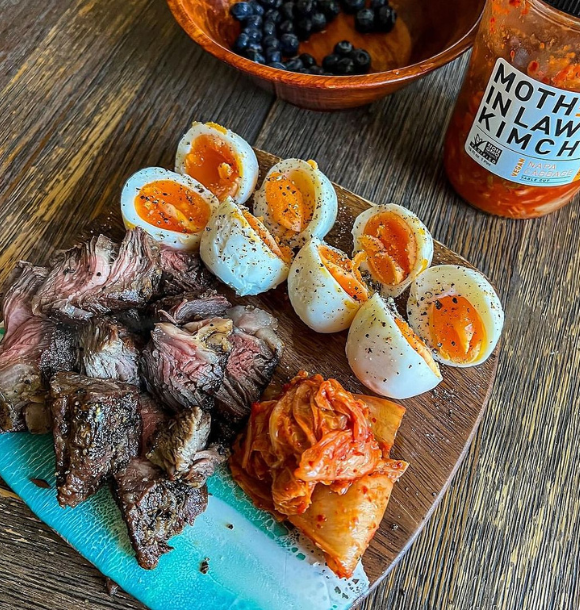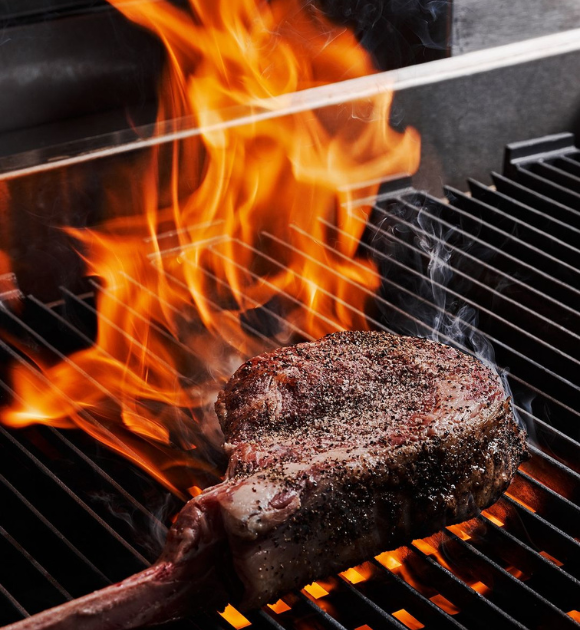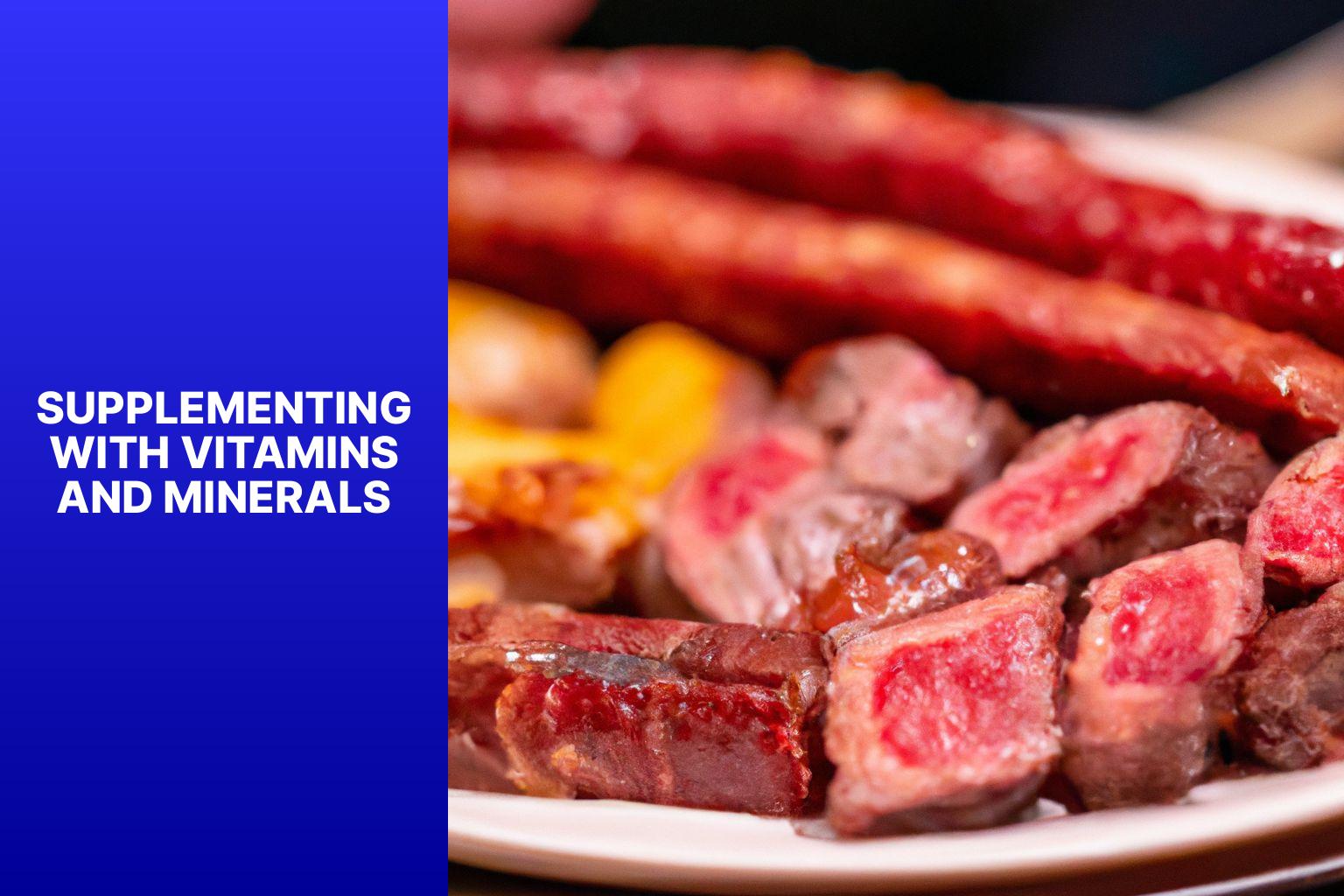Carnivore Chronicles: The Best Meats for Men
The Carnivore Diet is a unique and controversial approach to nutrition that has gained popularity in recent years. This article delves into the intricacies of the diet, explores its potential benefits for men, and highlights the best meats to consume for optimal results.
The Carnivore Diet, as the name suggests, is a dietary regimen that emphasizes the consumption of animal-based foods while excluding plant-based foods. It involves eating primarily meat, with minimal or no intake of carbohydrates, fruits, vegetables, and grains. The concept behind this diet is to mimic the eating patterns of our hunter-gatherer ancestors and rely on nutrient-dense animal products for sustenance.
Advocates of the Carnivore Diet claim various benefits, such as improved body composition, increased energy, mental clarity, and better overall health. It is important to note that this diet is highly restrictive and should only be followed under the guidance of a healthcare professional.

The nutritional considerations on the Carnivore Diet are crucial to ensure adequate nutrient intake. Protein plays a vital role in a man’s diet, supporting muscle growth, repair, and hormone synthesis. Essential fatty acids, such as omega-3s, are also important for brain health, hormonal balance, and a strong immune system.
When it comes to choosing meats for the Carnivore Diet, there is a wide range of options available. Lean cuts of beef are a great source of high-quality protein, while fatty cuts of beef provide ample amounts of essential fatty acids. Pork, chicken, turkey, and fish offer additional protein options, and seafood provides omega-3 fatty acids.
Organ meats, often overlooked in modern diets, are highly nutritious and should not be disregarded. They are rich in vitamins, minerals, and other vital nutrients.
Preparing and cooking meat for maximum nutritional value is crucial. Methods like grilling, braising, stewing, and slow cooking can help retain nutrients and enhance flavors.
While meat forms the foundation of the Carnivore Diet, supplementation with vitamins and minerals may be necessary to ensure nutritional adequacy. Consulting with a healthcare professional is recommended to determine individual needs.
It is essential to remember that the Carnivore Diet should be approached with caution. Potential side effects and risks, such as nutrient deficiencies, digestive issues, and long-term health implications, must be considered.
Key Takeaways:
- The Carnivore Diet benefits certain individuals: The Carnivore Diet is a dietary approach that primarily focuses on consuming meat. It is beneficial for individuals who thrive on high-protein diets and are looking to improve their overall health and well-being.
- Essential nutrients for men on the Carnivore Diet: Protein plays a crucial role in a man’s diet, providing necessary amino acids for muscle growth and maintenance. Essential fatty acids, such as omega-3s, are important for brain function and heart health. These nutrients can be obtained from various meat sources.
- Cooking methods for optimal flavor: Grilling, braising, stewing, and slow cooking are ideal methods for preparing meats on the Carnivore Diet. These techniques help enhance the flavor and tenderness of the meat, providing a satisfying and delicious dining experience.
What is the Carnivore Diet?
The Carnivore Diet is a dietary approach that focuses on consuming animal products and limiting plant-based foods. By minimizing carbohydrates, fruits, vegetables, and other plant-based foods, individuals following this diet primarily eat different types of meat such as beef, poultry, pork, and fish.
The underlying principle of the Carnivore Diet is the belief that humans have evolved to be carnivorous. Advocates of this diet argue that it can provide all the necessary nutrients for optimal health and may lead to weight loss, improved mental clarity, increased energy levels, and overall better health.
A key component of the Carnivore Diet is the high intake of protein from meat. Protein is crucial for tissue building, repair, immune function, and maintaining muscle mass. Animal products supply essential fatty acids, which play a vital role in brain function, hormone production, and overall well-being.
It is crucial to seek advice from a healthcare professional before making significant changes to your diet. The Carnivore Diet may not be suitable or beneficial for everyone.
Who Does the Carnivore Diet Benefit?
The carnivore diet benefits a variety of individuals. Specifically, it can be beneficial for:
1. People with autoimmune disorders: The carnivore diet helps alleviate symptoms and improve well-being in individuals with conditions like rheumatoid arthritis and Crohn’s disease. By eliminating plant-based foods that may trigger inflammation, this diet can have a positive impact.
2. Individuals seeking weight loss: The high protein content in the carnivore diet promotes satiety and reduces cravings, making it an effective tool for weight loss. Focusing on nutrient-dense meats and eliminating carbohydrates can lead to improved body composition.
3. Those with digestive issues: The carnivore diet, which mainly consists of animal products, can alleviate digestive distress and promote better gut health for individuals with intolerances or sensitivities to plant-based foods.
4. Athletes and fitness enthusiasts: The carnivore diet provides sufficient protein for muscle growth and repair. It also enhances athletic performance by supporting energy levels, reducing inflammation, and facilitating recovery.
5. Individuals aiming for mental clarity: By eliminating processed foods and carbohydrates, the carnivore diet can improve brain function and focus. Many individuals on this diet report increased mental clarity and reduced brain fog.
It is important to note that while the carnivore diet can be beneficial for these groups, it may not be suitable for everyone, and individual results may vary. Consulting with a healthcare professional or registered dietitian is recommended before making any significant dietary changes.
Nutritional Considerations on the Carnivore Diet

Photo Credits @santacarotabeef
When it comes to the carnivore diet, nutritional considerations play a crucial role. In this section, we’ll explore the key factors that men need to keep in mind when adopting a carnivorous eating plan. From the importance of protein for men’s health to understanding the role of essential fatty acids, we’ll uncover the essential elements for a successful carnivore diet. So, grab your steak knife and let’s dive into the world of optimal nutrition for meat-loving gentlemen!
The Role of Protein in a Man’s Diet
Protein plays a crucial role in a man’s diet, serving several important functions for the body. It is essential for the growth and repair of tissues, including muscles, bones, and organs. It helps in the development and maintenance of lean muscle mass, which is vital for strength and physical performance. Protein also plays a significant role in the production of enzymes, hormones, and antibodies, which are essential for proper bodily functions and a strong immune system.
When it comes to protein consumption, men are advised to consume around 56 grams per day, based on an average daily caloric intake of 2,000 calories. Individual protein requirements may vary depending on factors such as age, weight, activity level, and health goals.
Animal-based protein sources like meat, poultry, fish, and dairy products are considered complete proteins as they provide all the essential amino acids that the body needs. These sources generally have higher protein content compared to plant-based sources. It is important to include a variety of protein sources in a man’s diet to ensure adequate protein and essential nutrient intake.
Consuming protein in moderation and in balance with carbohydrates and fats is crucial. A well-balanced diet that incorporates a variety of nutrient-dense foods will help achieve optimal protein intake and overall nutritional status.
Understanding the role of protein in a man’s diet and making informed choices about protein sources can significantly contribute to overall health and well-being.
The Importance of Essential Fatty Acids
Essential fatty acids play a crucial role in supporting various bodily functions. These important nutrients cannot be produced by the body itself and must be obtained from the diet. Two key types of essential fatty acids are omega-3 and omega-6. Omega-3 fatty acids are known to reduce inflammation and support brain and heart health. They can be found in fatty fish like salmon, sardines, and mackerel. On the other hand, omega-6 fatty acids promote growth, regulate metabolism, and support the immune system. Good sources of omega-6 fatty acids include poultry, nuts, and vegetable oils.
It is essential to ensure an adequate intake of essential fatty acids for overall health, as they contribute to brain development, heart health, and the proper functioning of the immune system. Maintaining a balanced ratio of omega-3 to omega-6 fatty acids is recommended, ideally ranging from 1:1 to 1:4.
When following the carnivore diet, it may be challenging to obtain sufficient essential fatty acids. This is because the diet primarily consists of animal products, which are typically higher in omega-6 fatty acids compared to omega-3 fatty acids. Therefore, individuals on the carnivore diet should make an effort to incorporate fatty fish or other sources of omega-3 fatty acids into their meals. In some cases, omega-3 fatty acid supplements may also be necessary to meet the nutritional needs related to essential fatty acids.
The Best Meats for Men on the Carnivore Diet

Photo Credits @marcuscooks
When it comes to the carnivore diet, choosing the right meats can make all the difference. In this section, we’ll uncover the best meats for men who are embracing their inner carnivore. From the sizzling delights of grilling to the hearty comfort of braising and stewing, and the mouthwatering magic of slow cooking, we’ll explore the juiciest and most flavorful options available. Get ready to indulge in a meat lover’s paradise as we discover the ultimate meats for a fulfilling carnivorous experience.
Grilling
Grilling is popular for cooking meat on the carnivore diet. Consider the following when grilling meat:
- Cooking time: Grilling requires shorter cooking times compared to slow cooking or braising, especially for smaller cuts of meat.
- Cooking temperature: Grill meat at the appropriate temperature for food safety. The recommended internal temperature is around 145°F (63°C) for medium-rare and 160°F (71°C) for medium.
- Grill cleanliness: Ensure the grill is clean before cooking to prevent contamination. Clean the grill grates and remove residue from previous cookouts.
- Marinating: Marinate the meat before grilling for flavor and tenderizing. Choose low-carb marinades without sugar or high-carb ingredients.
- Seasoning: Enhance the meat’s flavor with herbs, spices, and salt. Avoid commercial seasonings with additives or fillers.
- Grill maintenance: Regularly clean and maintain the grill for longevity and even heat distribution.
- Turning and flipping: Properly turn and flip the meat during grilling for even cooking on both sides. Use tongs or a spatula to prevent piercing the meat and losing juices.
- Resting: Allow the meat to rest for a few minutes before slicing. This retains juices and enhances tenderness.
Grilling is a versatile method for cooking meats on the carnivore diet. Follow these tips for delicious and properly cooked grilled meats as part of your carnivore diet.
Braising and Stewing
Braising and stewing are essential techniques that enhance the flavors and tenderness of meat in the carnivore diet. Follow these steps to master the art of braising and stewing:
1. Begin by selecting slow-cooking cuts of meat such as chuck roast, short ribs, or brisket.
2. Before cooking, season the meat with a combination of salt, pepper, and your choice of herbs/spices.
3. Heat up a large skillet or Dutch oven and add your preferred cooking fat, whether it be oil or animal fat like tallow or lard.
4. Sear the meat on all sides until a beautiful golden brown crust forms.
5. Once the meat is seared to perfection, carefully remove it from the skillet or Dutch oven.
6. Proceed to cook onions, carrots, and celery in the same skillet or Dutch oven until they become soft and slightly caramelized.
7. To create a flavorful base, add your choice of liquid, such as beef broth or bone broth, to cover both the meat and vegetables.
8. Return the meat to the skillet or Dutch oven, making sure it is fully submerged in the liquid.
9. Bring the liquid to a boil, then reduce the heat and cover the skillet or Dutch oven.
10. Allow the meat and vegetables to gently simmer for a period of 2-4 hours until they become wonderfully tender.
11. Periodically check the meat and add more liquid if necessary to maintain the desired consistency.
12. Once the meat reaches a state of tenderness where it easily falls apart, it is ready to be served.
Braising and stewing play a crucial role in breaking down the tough fibers of the meat, resulting in a dish that is both tender and bursting with flavor. By incorporating these techniques into your cooking routine, you can create delicious meals while staying true to the principles of the carnivore diet.
Slow Cooking
Slow cooking is a popular method of preparing meat on the carnivore diet. It involves cooking meat at a low temperature for an extended period, resulting in tender and flavorful dishes. Here are some key points to consider when it comes to slow cooking:
1. Retains Nutritional Value: Slow cooking preserves the meat’s nutritional value by allowing it to break down slowly, making it easier to digest and absorb essential nutrients.
2. Enhances Flavor: The low and slow cooking process fully develops the flavors of the meat, tenderizing tough cuts and infusing them with rich flavors for delicious meals.
3. Versatility: Slow cooking works well with various meats like beef, pork, lamb, and poultry. It transforms tougher cuts into melt-in-your-mouth delicacies, such as hearty beef stew and succulent pulled pork.
4. Convenience: Slow cooking requires minimal effort. Just add the meat, seasonings, and spices to a slow cooker or Dutch oven, set the cooking temperature, and let it simmer. Perfect for busy individuals or those who prefer a “set it and forget it” method.
5. Meal Prep Friendly: Slow cooking allows for cooking large batches of meat at once, making it ideal for meal prepping. Portion out cooked meat into individual servings for nutritious and ready-to-eat meals throughout the week.
So, whether you crave a comforting beef stew or tender pulled chicken, slow cooking is a fantastic way to prepare meat on the carnivore diet. Give it a try and enjoy the flavorful and nutritious results.
Supplementing with Vitamins and Minerals

Photo Credits: Www.Moderngentlemanmagazine.Com by James Wilson
Supplementing with vitamins and minerals is crucial for maintaining optimal health. Here are some tips to consider:
– When choosing a multivitamin, opt for a well-balanced one that includes essential nutrients such as vitamin C, vitamin E, B vitamins, calcium, and iron.
– Take into account your specific needs based on factors like age, gender, and health conditions. For instance, women of childbearing age may benefit from additional folic acid, while older adults might require more vitamin D for bone health.
– Strive to meet the recommended daily intake (RDI) of vitamins and minerals by combining a balanced diet with supplementation when necessary. It is advisable to seek advice from a healthcare professional to determine your specific requirements.
– Prioritize nutrient-dense foods like fruits, vegetables, whole grains, lean proteins, and healthy fats. These foods provide a wide range of vitamins, minerals, and other beneficial compounds.
– Pay attention to bioavailability, as certain vitamins and minerals are better absorbed from specific food sources. For example, heme iron from animal sources is more easily absorbed than non-heme iron from plant-based sources.
– Avoid excessive supplementation, as consuming excessive amounts of certain vitamins and minerals can have adverse effects. Follow recommended dosages and consult a healthcare professional if you are unsure.
– Regular check-ups and blood tests are important to monitor your health and identify any nutrient deficiencies or imbalances. Seek professional guidance for personalized supplementation if needed.
– Remember that overall health is also influenced by a balanced diet, regular exercise, and lifestyle factors. Always consult a healthcare professional before starting any new supplements or making significant changes to your diet.
The Carnivore Diet and Exercise

Photo Credits @luis03pineda
The Carnivore Diet and Exercise are two closely intertwined factors when it comes to achieving optimal health. This particular diet emphasizes the consumption of animal-based foods in order to support muscle growth and physical fitness.
1. Increased Muscle Mass: The Carnivore Diet, which is abundant in protein, is beneficial for building and maintaining lean muscle mass. Lean meats such as beef, pork, and poultry provide the necessary amino acids required for muscle repair and growth.
2. Improved Energy Levels: By eliminating carbohydrates and relying on animal-based foods for energy, the Carnivore Diet promotes stable blood sugar levels, thereby preventing energy crashes commonly associated with high-carbohydrate diets.
3. Enhanced Exercise Performance: Protein-rich meats aid in muscle recovery and serve as fuel for intense workouts. Red meats like steak or lamb, which contain iron, have the potential to enhance exercise performance by improving the transportation of oxygen to the muscles.
4. Optimal Nutrient Intake: Although the Carnivore Diet primarily revolves around meat consumption, it is important to incorporate organ meats such as liver and heart into the diet. These organ meats are incredibly rich in essential vitamins and minerals. Nutrients such as iron, zinc, and B vitamins play a vital role in contributing to overall health and well-being.
5. Satiety and Weight Management: The high protein and fat content in the Carnivore Diet create a feeling of fullness, resulting in a reduction in overall calorie intake and aiding in weight management.
While the Carnivore Diet and exercise offer numerous benefits, it is crucial to consult with a healthcare professional before making any significant dietary changes. It is important to listen to your body’s cues and make adjustments to the diet and exercise routine according to individual needs.
Potential Side Effects and Risks of the Carnivore Diet
The potential side effects and risks of the carnivore diet should not be ignored. It is important to be aware of these and consider them before making any dietary changes. Nutrient deficiencies, digestive issues, an increased risk of heart disease, and potential long-term health complications are among the possible consequences.
One significant concern is nutrient deficiencies. Since the diet lacks essential nutrients such as fiber, vitamins, and minerals found in fruits, vegetables, and whole grains, it can increase the risk of health problems.
Digestive issues may also arise due to a lack of fiber from a high meat intake, which can lead to constipation and an imbalanced gut health.
The diet’s high saturated fat and cholesterol content can contribute to an increased risk of heart disease.
Excluding entire food groups can result in potential long-term health complications, including nutrient deficiencies, osteoporosis, kidney problems, and other imbalances.
It is essential to note that not everyone will experience these side effects or risks on the carnivore diet. Nevertheless, it is crucial to consult with a healthcare professional before making any dietary changes. They can provide guidance and help assess the long-term implications and potential health risks involved with the diet.
Frequently Asked Questions
What is the carnivore diet and who is it suitable for?
The carnivore diet is a meal plan that involves consuming only animal products such as meat, eggs, and dairy. It is a popular option for people who want to lose weight and improve their overall health and fitness. This diet is known for its simplicity and focus on nutrient-dense foods. It is suitable for both men and women and offers a variety of options for different dietary preferences.
Who are some vocal supporters of the carnivore diet?
Some vocal supporters of the carnivore diet include Jordan B. Peterson and his daughter, Mikhaila, who claim that it has improved their health and helped them lose weight. Shawn Baker, a former orthopedic surgeon, is also a prominent figure in the carnivore community and promotes the diet through books and diet plans.
Is there any scientific evidence supporting the carnivore diet?
While there is limited scientific research on the long-term effects of the carnivore diet, anecdotal evidence suggests that it may help with weight loss and certain health conditions. Critics argue that it lacks essential nutrients like vitamin C and fiber, and may increase the risk of diseases like scurvy. It is recommended to consult with a healthcare professional before starting this diet, especially for individuals with certain medical conditions or dietary restrictions.
What are the potential environmental impacts of the carnivore diet?
The environmental impact of the carnivore diet is a concern, as reducing beef consumption has been linked to reversing climate change. It is important to consider the sustainability and ethical implications of any dietary choices, including the consumption of animal products.
How can I cancel my contract or subscription related to YouTube services?
If you are looking to cancel your contract or subscription related to YouTube services, you can find instructions or links in the “Verträge hier kündigen” section of the YouTube website. Follow the provided guidelines to cancel your contract or subscription.
How can I test and provide feedback on new features or updates for YouTube?
If you are interested in testing and providing feedback on new features or updates for YouTube, you can participate in the “Neue Funktionen testen” program. This program invites users to try out new features before they are officially released and provide feedback to help improve the user experience. Look for more information in the “Neue Funktionen testen” section of the YouTube website.
